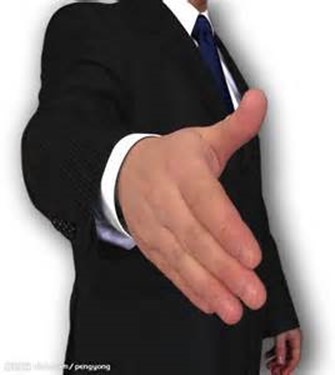When interviewing for a job, it’s all about how you answer the questions, right? Wrong!!! They way you answer the interview questions does have an effect on the employer’s final decision. However, it is not the only thing taken into consideration. The majority of job seekers would be surprised to learn how much nonverbal communication matters.
Some studies have shown that people form first impressions based 55% on body language and only 7% of what you say!
So you can already see, nonverbal communication is as important, or even more important than what you are actually saying.
You may be wondering, when does the interview actually start? The evaluation will start the moment you arrive and continue until the interview is finished. So you want to make sure your nonverbal communication is sending the right message.

Types of Nonverbal Communication
Eye Contact: Eye contact is a major part of nonverbal communication. It shows confidence and clarity. It is also useful for creating a connection with your interviewer. Eye contact should be personable, but there is no need to stare.
Posture: Proper posture also displays confidence. Keep your back straight and sit (don’t slouch) in your chair.
Smiling: Smiles are addicting and disarming. A good smile will relax your interviewer just as much as it expresses a positive attitude. A smile during your interview is a good way to build points with the interviewer.
Personal Space: You always want to be far enough that the interviewer is comfortable. Find a comfortable amount of space but you do not want to be too far either. Too much distance will give the impression you are distancing yourself from the interviewer.
Hands: Your hands should sit on the table. It can be hard to keep them still especially if you are nervous but try not to talk too much with your hands. It may take away from the content of your answers.
Tone of Voice: The tone of your voice is also a form of nonverbal communication. A good example of this is during a phone interview. The only way your interviewer can get an idea of your personality is by listening for changes in the tone of your voice. Speaking up and changing the tone of your voice makes you seem more personable.

Tips for a Successful Interview
- Get Plenty of Practice Practice for your interview ahead of time. Stand in the mirror or record yourself with a phone or tablet. Think about the things you appear to be saying non-verbally. How you can change them to give the impression you are looking for?
-
Be Courteous
Make a point of greeting the receptionist before taking a seat to wait for your interviewer. You should be polite, but not overly friendly. While you’re waiting, don’t take phone calls or obsessively check your phone. Instead, review your interview notes or any company materials displayed in the lobby.
-
Make the First Impression Count
Walk confidently to greet your interviewer, make eye contact, smile, and offer your hand. This is your only chance to make a lasting impression.
-
Be Mindful During Your InterviewDon’t over-think the answers to the questions. This will cause you to become distracted from the actual interview itself. Again, your body language tells things about you that you may not even realize you are doing. If you want to display confidence, think about having excellent posture, keeping eye contact with your interviewer, and making sure to keep a calm demeanor.
-
Pay Attention to the Interviewer’s Nonverbal Communication
What signals are you are getting from the interviewer? If you see them leaning back or looking uncomfortable, you may be in their personal space. If the interviewer seems impatient or not into what you are saying, offer shorter and more brief answers.

Once the interview is over, thank your interviewer politely for their time. Shake their hand professionally and don’t forget to smile. When it’s time to leave, walk confidently out the door.
There are many different things to think about with nonverbal communication and what it means in the business world. If you are finding that you are not as successful as you would like to be in interviews, it could be your body language. It may be helpful if you take a class or research nonverbal communication so you can achieve the results you are looking for.
RELATED:
What Are Behavioral Questions and How Do You Answer Them?
Featured image credit: Austin Distel











